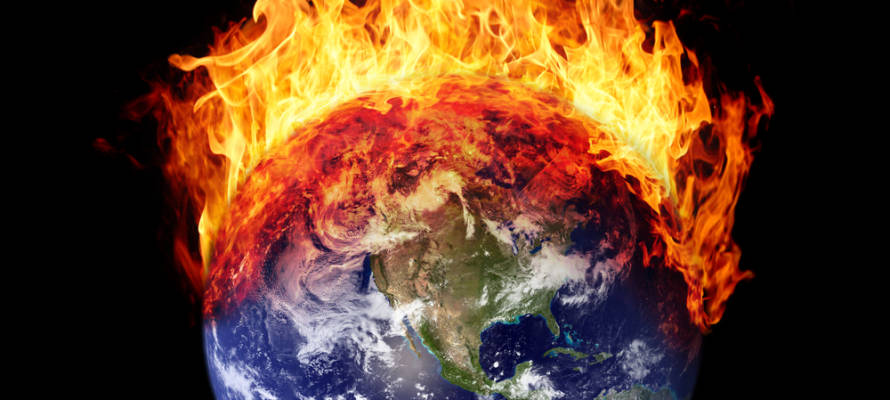Old Testament Martial Arts
In a really insightful Facebook Reel, Bible teacher Mike Winger evokes memories of the famous "wax on, wax off" scenes from the 80s cult classic movie The Karate Kid to help illustrate how the development and study of the Old Testament helps prepare us in understanding the New.
When Mr. Miyagi asked Daniel-son to wax on and wax off and to paint the fence he makes him do it in a specific way, right? You can’t just wax on, wax off. No, no. You have to do it like this [Miyagi shows Daniel-son the exact motion]. … Then one day he just flips out, and ahhh, I hate this, this is the dumbest thing … ta da … Mr. Miyagi just starts attacking him. And so Daniel-son responds, doing his what? Wax on, wax off! And all of a sudden he realizes, like, oh, these are like blocks and stuff, like I’m, I learned how to fight karate!

But I think that what we have to do is look at the Old Testament, as our first time through it, as … like you’re just learning how to, like, paint the fence, wax on, wax off. And you may not fully get the reasoning of all that yet, but you get it in you so that [when] you come to the New Testament you can just explode with understanding of both the New and the Old.
Click here to watch the clip
He conclues,
Think about it this way. If there had been no Old Testament, no Passover, no prophecies, [and] Jesus shows up, dies on the cross … Nobody gets it! There needed to be this period of revelation to prepare people for Jesus Christ, to make sense of who He was.
"For if you believed Moses, you would believe me; for he wrote of me" (John 5:46, ESV).
"And beginning with Moses and all the Prophets, he interpreted to them in all the Scriptures the things concerning himself" (Luke 24:27, ESV).
The Doomsday Clock
There are some things in life that you didn't know you needed to be concerned about. For instance, as I did some online research for the sermon this Sunday, I found out that there is an official "Doomsday Clock" which is set by the Bulletin of Atomic Scientists. Who knew? In January of 2018, they moved the clock from 2 1/2 minutes to midnight to just 2 minutes away from midnight. Midnight symbolically stands for the end of the world . . . of course.
The furthest it has ever been away from midnight is 17 minutes, after the Cold War ended. And the closest it has ever been . . . are you ready for this . . . is right now - 2 minutes to Midnight. What this means is that they think we as humans are closer to destroying ourselves in some apocalyptic event brought on by nuclear war and global climate change than we have ever been before. Well, technically, they thought we were this close back in 1953, as well, when both Russia and the U.S. were racing for nuclear weapon advancement.

By the way, it is not just scientists who think the world is going to come to a catastrophic end. God tells us, through Peter's pen that "the day of the Lord will come like a thief, and then the heavens will pass away with a roar, and the heavenly bodies will be burned up and dissolved, and the earth and the works that are done on it will be exposed.
"Since all these things are thus to be dissolved, what sort of people ought you to be in lives of holiness and godliness, waiting for and hastening the coming of the day of God, because of which the heavens will be set on fire and dissolved, and the heavenly bodies will melt as they burn!" (2 Peter 3:10-12, ESV).
But there is a major difference between the outlook of the Bulletin of Atomic Scientists and the Bible. Though the world will indeed come to a catastrophic end in both views, the facts of future judgment are coupled with hope in the Scriptures. This is seen in Peter's conclusion, where we read, "But according to his promise we are waiting for new heavens and a new earth in which righteousness dwells" (2 Peter 3:13, ESV).
Every day we draw closer, not to the end of the world but to a glorious new beginning!
The Delphic Oracle
Croesus, the rich King of Lydia who controlled much of Asia Minor, consulted the Oracle at Delphia in the year 549 B.C. to find out if she thought he should attack the Persian King Cyrus. The Oracle said: “If you go to war you will destroy a great empire.”
Encouraged by the Oracle’s response, Croesus marched against the Persians. He was decisively beaten, and the Persians then invaded Lydia and captured its capital, Sardis. Croesus became Cyrus’s prisoner. Croesus sent messengers to the Oracle at Delphi asking why she had deceived him. The priestess replied that he had not been deceived; he had indeed destroyed a great empire .... his own!
Unlike the Delphic Oracle, God's Word speaks plainly of the dangers, risks, and rewards of our actions. Scripture tells us what God does not permit, what are sins, and what we should or should not do. It also implores us to repent of our sins and turn to the Lord. It warns us of what will happen if we don’t, and it tells us how we will live forever in the Kingdom of Heaven if we do!
"As for God, his way is perfect: The LORD's word is flawless; he shields all who take refuge in him" (Psalm 18:30).